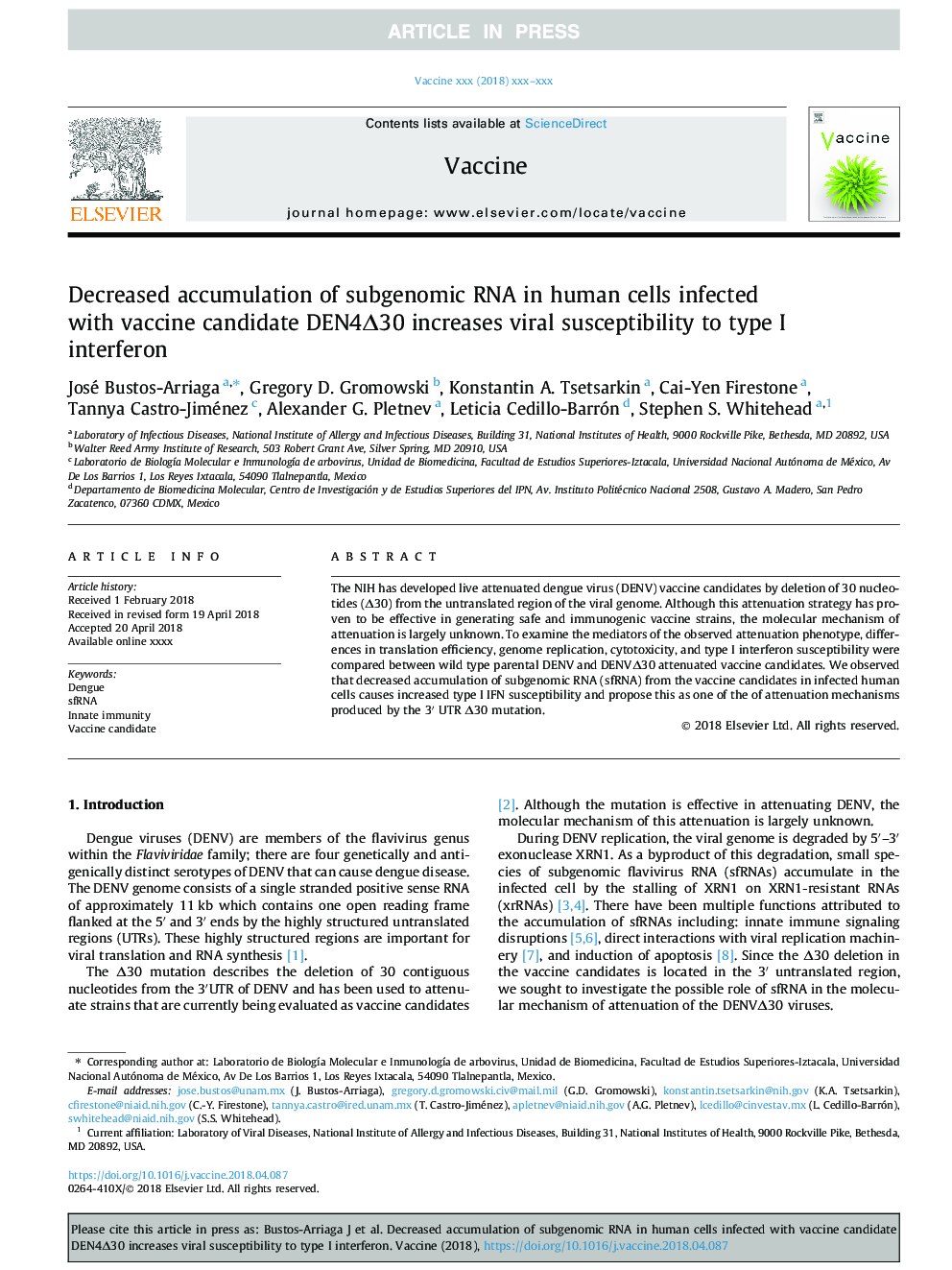| Article ID | Journal | Published Year | Pages | File Type |
|---|---|---|---|---|
| 8485621 | Vaccine | 2018 | 8 Pages |
Abstract
The NIH has developed live attenuated dengue virus (DENV) vaccine candidates by deletion of 30 nucleotides (Î30) from the untranslated region of the viral genome. Although this attenuation strategy has proven to be effective in generating safe and immunogenic vaccine strains, the molecular mechanism of attenuation is largely unknown. To examine the mediators of the observed attenuation phenotype, differences in translation efficiency, genome replication, cytotoxicity, and type I interferon susceptibility were compared between wild type parental DENV and DENVÎ30 attenuated vaccine candidates. We observed that decreased accumulation of subgenomic RNA (sfRNA) from the vaccine candidates in infected human cells causes increased type I IFN susceptibility and propose this as one of the of attenuation mechanisms produced by the 3â² UTR Î30 mutation.
Related Topics
Life Sciences
Immunology and Microbiology
Immunology
Authors
José Bustos-Arriaga, Gregory D. Gromowski, Konstantin A. Tsetsarkin, Cai-Yen Firestone, Tannya Castro-Jiménez, Alexander G. Pletnev, Leticia Cedillo-Barrón, Stephen S. Whitehead,
